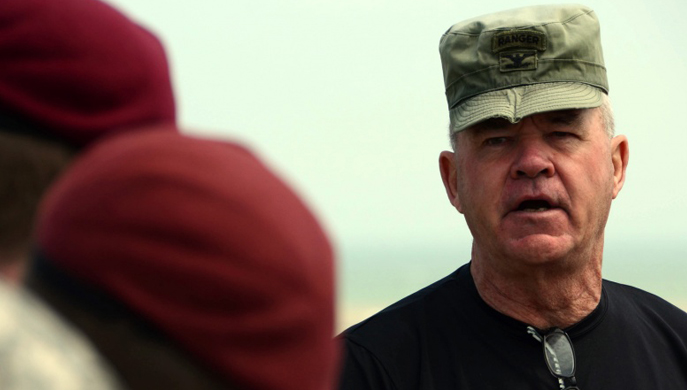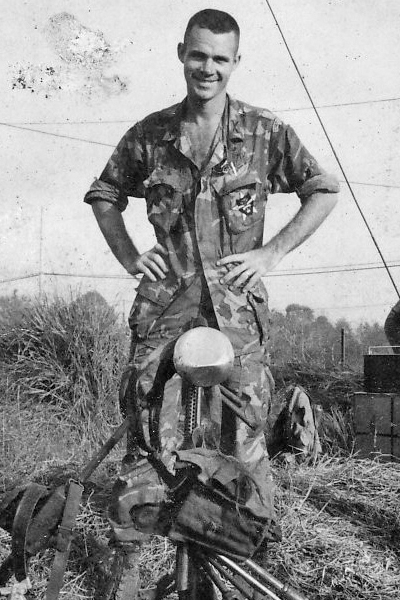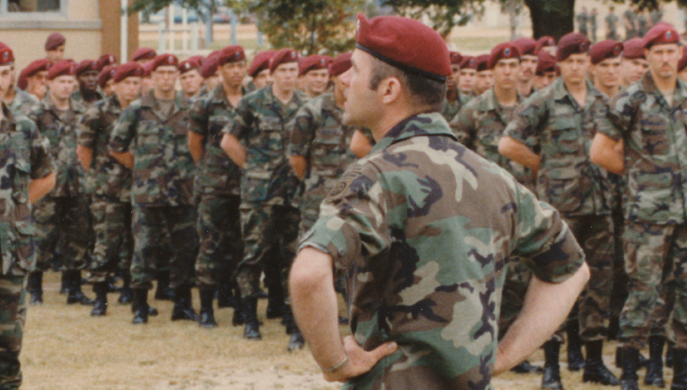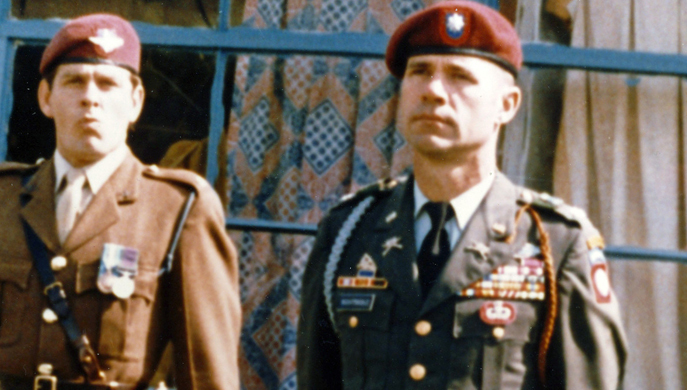

Record date:
Keith Nightingale, Colonel
Knowing that he’d join the Army after college, Col. Keith Nightingale built a storied career in the military, beginning with two tours in Vietnam, and going through Grenada, and Iran, to a position in the Department of Defense Interagency Counterdrug Task Force for Latin America from Panama—becoming, in the process, as much a part of the 82nd Airborne Division history as the other parts that he has always loved learning about and teaching to others. This oral history was recorded as a companion to Century of Service: U.S. Army 82nd Airborne Division, a Pritzker Military Museum & Library program.
Col. Keith Nightingale knew that he was going to join the Army after college even from an early age, and accordingly, joined the ROTC program as he attended Claremont McKenna College. He was the only regular Army Infantry Officer that the school commissioned in 1965, and with the rank of 2nd Lieutenant, he immediately applied for the 173rd and the 82nd Airborne Division. Because of the fighting already going on in Vietnam, and the 173rd already being engaged in combat situations, Col. Nightingale was assigned to the 82nd Airborne.
Col. Nightingale had two tours in Vietnam. The first was solely with the 52nd Vietnamese Ranger Battalion; the second was with the 101st Airborne Division. In this interview, Col. Nightingale discusses at length one of the biggest days of action that had a lasting effect on him: on June 27th, 1967, supported by the 18th ARVN Division with the 11th CAV, he and his fellow troops went up the Dong Ngai, and into some dense jungle terrain, and took on a reported company-sized VC base camp that actually held more than a regiment. Of the 450 men that started, Col. Nightingale recalls, only 32 were left after a day’s worth of fighting.
This interview was conducted, in part, to support a program recorded at the Pritzker Military Museum & Library called Century of Service: U.S. Army 82nd Airborne Division, in which Lt. Col. Joe Buccino discusses the changes in the Division throughout its history. For his oral history interview, Col. Nightingale recalls some of the history of the 82nd that he experienced firsthand; specifically how his division was heavily stocked with a lot of WWII and Korean War vets, allowing him to not only learn the reality of combat from some seasoned veterans but to also consume the important history of the Division by those that lived through it.
But Col. Nightingale also has his own role within that history that goes well beyond the combat he saw in Vietnam. As a graduate of Airborne, Jumpmaster, and Ranger schools, Col. Nightingale decided to make the military a career, ending up commanding four rifle companies, three battalions, and two brigades, either with Airborne or Ranger units. In addition to his tours in Vietnam, Col. Nightingale also served as an assault force commander in Grenada, was a part of the Iran Rescue Attempt, and later managed the Department of Defense Interagency Counterdrug Task Force for Latin America from Panama—all of which gets touched on or explored in depth in this oral history interview. Lost in the conversation, perhaps, is the recognition that Col. Nightingale has also garnered for himself as a part of his military career: the Defense Superior Service Medal, three Legions of Merit, five Defense Meritorious Service Medals, Humanitarian Service Medal (Iran) and four Bronze Stars for Valor, Vietnamese Medal of Honor, and Member Ranger Hall of Fame and the French Legion of Honor, Officer Class.
He is also a student of history. He understands why these kinds of oral history interviews are important, certainly, but also how we are shaped by our understanding of those that served before us. Since 1977, Col. Nightingale has given annual staff rides to members of 82nd, 101st, and the Rangers as a part of anniversary ceremonies marking the Normandy Liberation.













